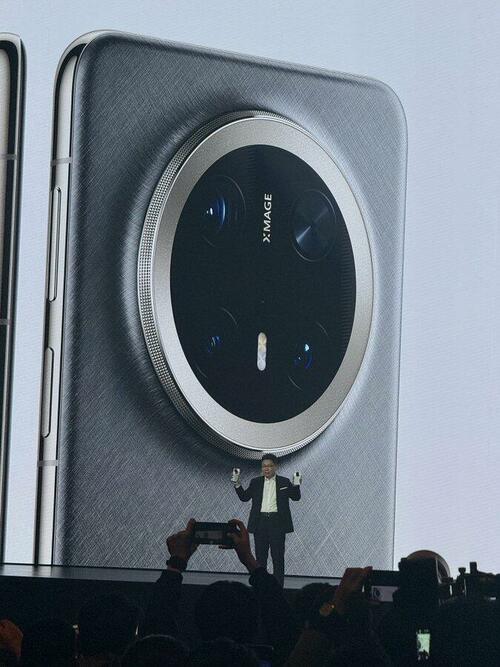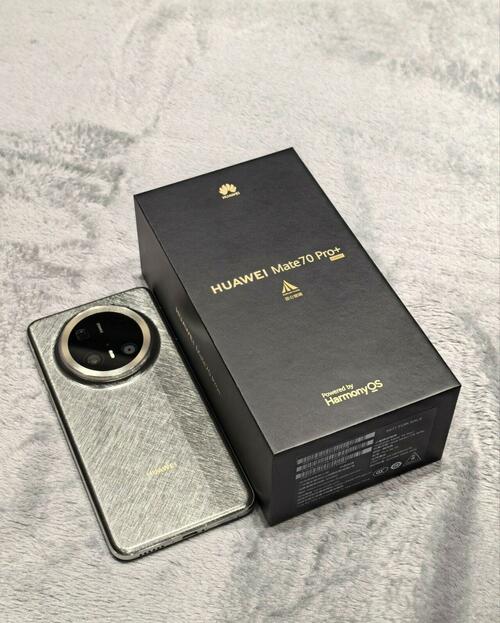
Chinese tech giant Huawei Technologies is preparing to break free from Western technology with its new flagship smartphone, which features domestic chips and homegrown software.
During the Tuesday launch event of the Mate 70 series, Richard Yu, the chairman of Huawei's consumer business, told the audience, "This is our most powerful phone (in the Mate series)," adding, "We have always been copied but never surpassed."
The release of the Mate 60 in 2023 sent shockwaves through Washington, D.C. political elites who had attempted to hinder Huawei's smartphone advancement through sanction warfare. However, the Mate 60 was found to feature cutting-edge domestic chips.
Yu explained that all new Huawei smartphones and tablets will be equipped with domestic chips in 2025 and beyond. He also said these devices will no longer feature Google's Android operating system but will instead be powered by Huawei's own operating system called "HarmonyOS Next."
"HarmonyOS Next has good potential as an alternative in China," Will Wong, senior research manager at IDC, told CNBC.
Lucas Zhong, a research analyst at Canalys, told CNN that the Mate 70 represents a "critical step" in Huawei's software evolution. He said pivoting away from the Android ecosystem "will be essential for Huawei to maintain momentum in the premium segment, solidify consumer loyalty, and attract potential platform switchers."
The Mate 70 signifies that Chinese companies can circumnavigate White House chip sanctions and achieve a complete disconnect from the West with their own operating system. It also symbolizes that the tech war between the US and China may only accelerate with President-elect Donald Trump's return to the White House in mid-January.
Mengmeng Zhang, a senior analyst at Counterpoint Research, estimated that Mate 70 series production should achieve about 10 million shipments over its lifetime, adding: "It will take time for Huawei to expand the developer community and establish a competitive … ecosystem."
Chinese tech giant Huawei Technologies is preparing to break free from Western technology with its new flagship smartphone, which features domestic chips and homegrown software.
During the Tuesday launch event of the Mate 70 series, Richard Yu, the chairman of Huawei’s consumer business, told the audience, “This is our most powerful phone (in the Mate series),” adding, “We have always been copied but never surpassed.”
The release of the Mate 60 in 2023 sent shockwaves through Washington, D.C. political elites who had attempted to hinder Huawei’s smartphone advancement through sanction warfare. However, the Mate 60 was found to feature cutting-edge domestic chips.
Yu explained that all new Huawei smartphones and tablets will be equipped with domestic chips in 2025 and beyond. He also said these devices will no longer feature Google’s Android operating system but will instead be powered by Huawei’s own operating system called “HarmonyOS Next.”
“HarmonyOS Next has good potential as an alternative in China,” Will Wong, senior research manager at IDC, told CNBC.
Lucas Zhong, a research analyst at Canalys, told CNN that the Mate 70 represents a “critical step” in Huawei’s software evolution. He said pivoting away from the Android ecosystem “will be essential for Huawei to maintain momentum in the premium segment, solidify consumer loyalty, and attract potential platform switchers.”
The Mate 70 signifies that Chinese companies can circumnavigate White House chip sanctions and achieve a complete disconnect from the West with their own operating system. It also symbolizes that the tech war between the US and China may only accelerate with President-elect Donald Trump’s return to the White House in mid-January.
Mengmeng Zhang, a senior analyst at Counterpoint Research, estimated that Mate 70 series production should achieve about 10 million shipments over its lifetime, adding: “It will take time for Huawei to expand the developer community and establish a competitive … ecosystem.”
Loading…






